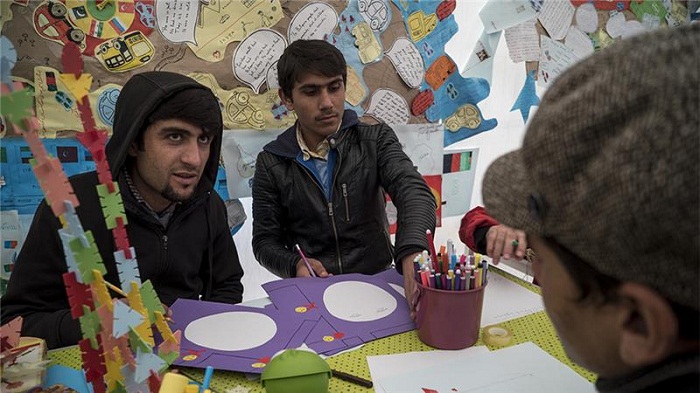Refugees in Bulgaria: `Extortion, robbery, violence`

But even once out of the war-ravaged country, Afghan refugees - like others from Syria, Iraq and elsewhere - continue to face violence, danger and exploitation on the path to Europe.
Tajana Zadravec, operations assistant and volunteer manager at Refugee Aid Serbia, said a growing number of the more than 200 refugees who pass through Miksaliste each week have told her tales of being beaten, detained, and forced to pay bribes by Bulgarian police.
"The groups that are coming during the last couple of weeks are coming from Bulgaria - they are in much worse shape than people coming from Macedonia, not just physically but emotionally," she told Al Jazeera.
"They got beaten, their documents and money [were] stolen, and they had different kinds of injuries that sometimes even our medical help can`t help them [with], so they`re going straight to the hospital."
Bulgaria`s Ministry of Interior did not respond to Al Jazeera`s request for a comment on the allegations, or how many refugees and migrants remain in detention centres.
In a statement published on Friday, Amnesty International called on Bulgaria to address accusations of shootings, beatings, and extortion by police with a "thorough and independent investigation".
Police abuse
"They took all my money and my phone," he told Al Jazeera. "I couldn`t speak to my family for weeks. One of my friends hid his telephone [from Bulgarian police] and let me call my dad."
Yusef told his father he was in a hotel in Sofia and on his way to Belgium. "He was crying because he had been so worried about me. I couldn`t tell him where I was. It would frighten him so much he`d have a heart attack."
The Afghan refugee, whose father sent him on his way to Europe after Taliban fighters showed up at his house and demanded he join the armed group, said he never imagined being "beaten up and having my money stolen" once in Europe, especially by Bulgarian authorities.
"I wanted to go to Belgium to continue my studies and live a normal life, but I wouldn`t have come if I knew this was going to happen."
Yusef said that he plans on waiting here for his cousin and friends to be released from Bulgarian detention centres before he continues travelling. "They are my good friends," he said. "Hopefully they arrive today or tomorrow."
His friend Muhammad, 20, remembered being beaten up by a Bulgarian officer. "He came and hit me in the head with a lamp several times for not making eye contact with him," he told Al Jazeera, pointing to a large lump on the back of his skull.
Common experience
Last month, the Belgrade Centre for Human Rights and Oxfam, an international charity, published a report detailing alleged abuses against refugees and migrants by Bulgarian police.
Based on several interviewees` testimony, the report concludes that there is a "consistent picture of alleged violations" in Bulgaria.
Based on more than 100 interviews with refugees and migrants, the testimonies "tell of extortion, robbery, physical violence, threats of deportation and police dog attacks".
In one instance, a group of around 10 refugees were beaten and had their belongings, including money, confiscated by officers after witnessing "a police officer holding a gun to a refugee`s forehead, while others lay on the ground, apparently unconscious".
The reports of widespread abuse come at a time when United Kingdom Prime Minister David Cameron has praised Bulgaria for restricting the flow of refugees into Europe.
During a visit to Bulgaria`s border with Turkey last week, Cameron urged other European Union member countries to adopt similar anti-refugee measures.
"They have got a sea border that they protect, they have got a land border with Turkey that they protect and I think there are real lessons to be learned here about [how] if you give it the priority you can get it done," Cameron said.
The British PM said that "it is important that Europe has strong external borders and here in Bulgaria you can see a prime minister and a government that is absolutely committed to that".















































